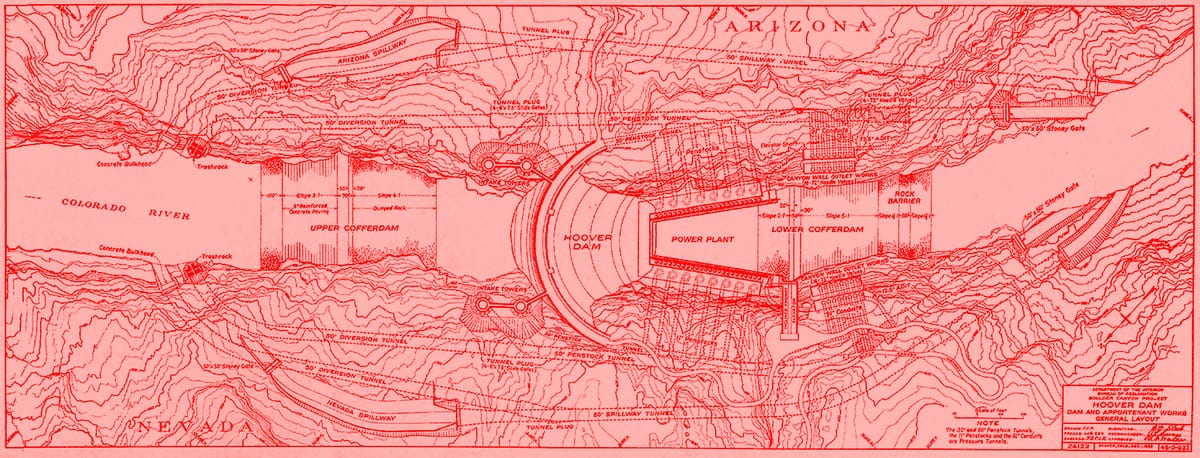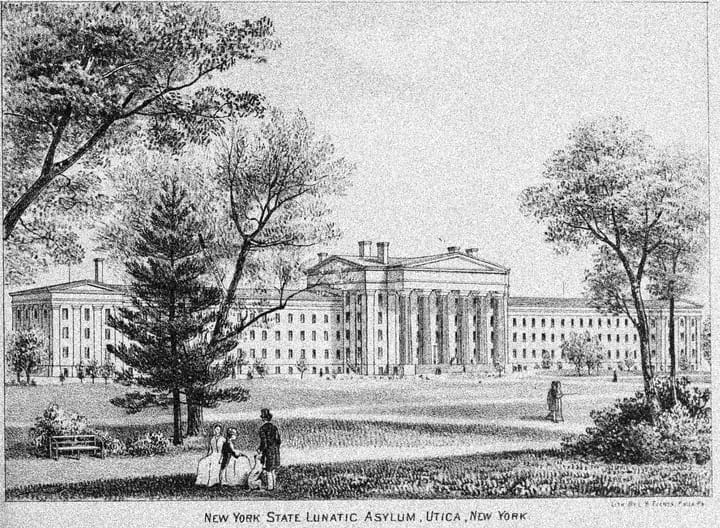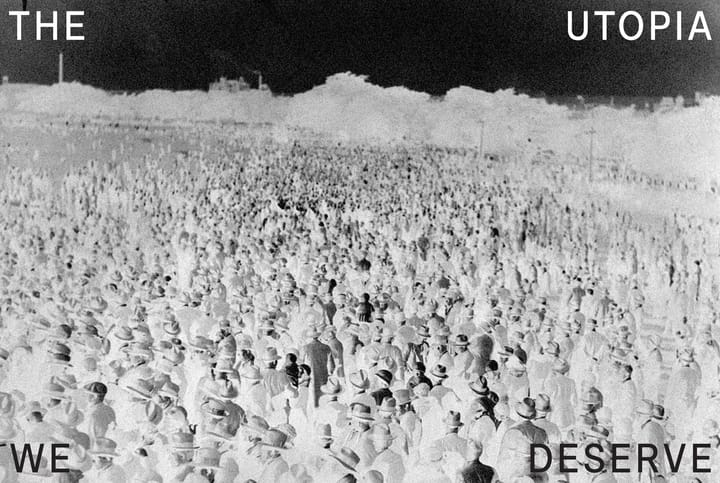Harold Ickes's Watchful Eye
Harold Ickes—FDR’s Interior Secretary and director of the Public Works Administration—was a contradictory figure: a true believer, consummate cynic, loyal public servant, and fiercely independent malcontent. We’ll need many more bureaucrats like him if we want large, effective public programs again.

The implementation of large, successful public works programs is not only a matter of legislative resolve; public programs also require efficient, honest, organized bureaucrats to administer them. The life of Harold L. Ickes provides a valuable case study. Ickes was a major architect of the New Deal, serving as the Secretary of the Interior and Director of the Public Works Administration under Franklin D. Roosevelt. Adept at eliminating corruption and graft, Ickes illustrates how productive public-private partnerships can be when administered effectively. Throughout his career, Ickes saw bureaucracy not as an obstacle, nor even a ladder to climb; he saw bureaucracy as a tool—a weapon that could be used to attack homelessness, unemployment, and poverty.
When Ickes was first called into presidential hopeful Franklin Roosevelt’s New York office, he could have been considered well past his prime. A short, pudgy, bespectacled man of almost sixty, he had spent the last three decades operating a quiet Chicago law office. Ickes had no experience whatsoever in the fields which Roosevelt would eventually assign him to administer—conserving natural resources, administering private construction contracts, funding for public projects, and a host of other responsibilities.
Nevertheless, Ickes had three qualities which made him one of the most effective administrators of the New Deal: a knowledge of how to manage public opinion; a cynical understanding of political back-door dealing; and the unshakeable courage of his political convictions. Ickes was an extraordinary figure not only because of his exceptional honesty and competence, but also because he was seemingly immune to public and private pressure. He “stood on his own two feet”, in Roosevelt’s words, and pursued his mission of effective, transparent, and principled public service despite tremendous pressure to cave to political expediency.
Ickes needed this gumption to defend a $5 billion proposal for what would eventually become the Public Works Administration (PWA). Even Roosevelt, who had charged his cabinet with designing sweeping public programs, balked at the figure. “The sum … took the president aback. His first question, Ickes recalled, had to do with ‘what public works were there that would call for the expenditure of such a large sum?’” The first year’s expenditures amounted to almost $10 per person in the nation, this at a time when the average hourly wage for laborers was ¢35. The PWA was eventually approved by congress—which authorized almost $7 billion in federal spending over the next six years—and Ickes was tasked with distributing the money as quickly as possible.
Despite overwhelming pressure from the public and congress to distribute his funds immediately, and from private enterprises all-too eager for pork-barrel spending, Ickes prioritized honesty and transparency, keenly understanding that he was not only building public works, but building public trust. Ickes himself admitted that, “On the plea that Congress intended the money appropriated to be spent as rapidly as possible, it would have been a simple matter to wink at a certain amount of corruption.” “If it was a question of speed with some graft versus a slower program without graft,” he continued, “those entertaining the point of view just described preferred speed.” Nevertheless, Ickes did not cave. “Ever since I became interested in public affairs,” he wrote, “I have contested vigorously the generally accepted theory of the cynics that it is useless to expect the government service to be either particularly honest or efficient.”
The construction of Boulder Dam is an illuminating example. Ickes saw the project as an opportunity not only to build public utilities and put people to work, but also as a chance to attack corruption. He repeatedly rejected bids from concrete producers when he suspected a price-fixing conspiracy, and initiated investigations into corporate collusion. Nevertheless, under his leadership, the dam was completed two and a half years ahead of schedule. (Ickes found the name “Hoover Dam” insulting, regarding Herbert Hoover—an ally of the power trust—as an enemy of public programs. In the 1920’s Ickes had seen “Hoover [play] politics with food relief funds to the detriment of starving peoples,” and held a grudge for the rest of his life.)
It is easy to write off the bureaucratic class as professional cowards: “glum men,” as C. Wright Mills said, who “reduce the hazards of personal decision by carefully following the rules.” Indeed, as many compelling critiques of the managerial class illustrate, we should not look to pencil-pushers for the subjects of historical progress. But writing off managers and administrators entirely gives up bureaucracy itself as hostile terrain. Moreover, it misses the fact that administrators and bureaucrats are not only necessary for political progress, but can actually be vital allies. Harold Ickes’s career illustrates how crucial competent, principled administrators can be to the success of public programs. We’ll need many more bureaucrats like him if we want large, effective public programs again.
■
Taylor Hines teaches at Arizona State University.



